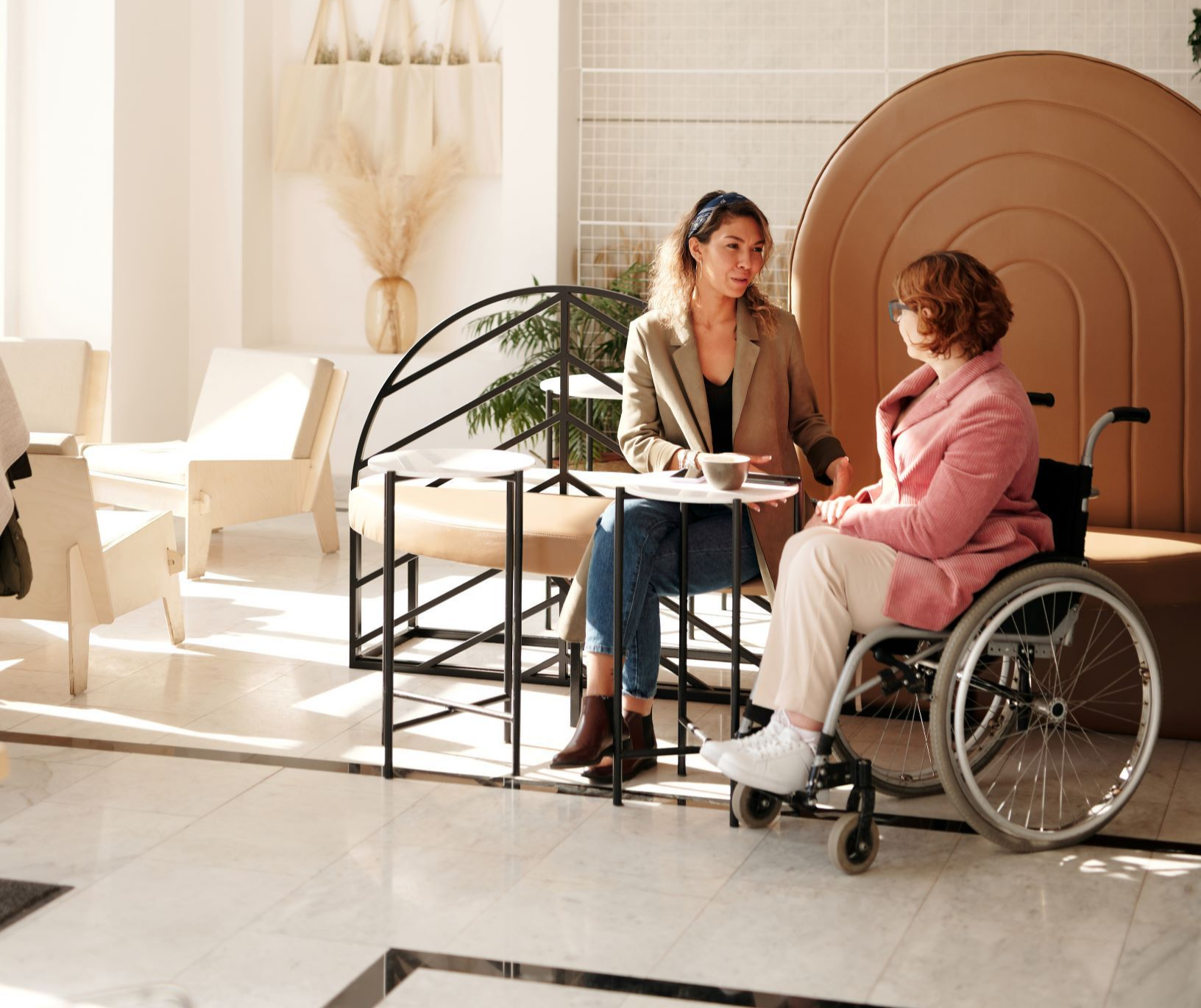Welcome to guest blogger and OT Megan Cole, MS, OTR
While in graduate school for Occupational Therapy, one of the worst days of my life occurred. My kind, loving, beautiful, intelligent, irreplaceable Aunt Linda died by suicide. My professors were empathetic and accommodating with me. It was the last week before the holidays, and I think they expected me to be out until after the new year. Several moved my examinations to online and no one pressured me to return before I was ready. However, in the overachiever fashion of every occupational therapy student, I returned to class on Monday. I needed some normalcy and distraction. When I entered class, however, my professor’s face fell. I warily looked at the PowerPoint, and that day’s topic was suicide. I will never know if that lesson was always planned for that day, or if my professor had moved it in hopes that I would not have to sit through this lesson. But it’s how the day went, and I’m truly grateful for how it worked out.
What I learned that day changed my trajectory in
occupational therapy and life. I sat in the back and quietly wept while my
professor talked about risk factors and warning signs of suicide. I’m not
exaggerating when I say, my aunt had them all. She had a history of attempts
(historical factors), had struggled with lifelong depression (health factors),
and had recently been experiencing chronic pain and substance use issues during
a period of prolonged stress (environmental factors). She began to isolate herself
from her family, not showing up for planned events (behavior changes). She
spoke of ending her pain and feeling like a burden (talking about suicide). She
was a shell of the fun-loving aunt she once was and seemed numb to everything
happening around her (mood changes). Looking back, it was obvious. I can’t
change what I and my family didn’t know then, but I can change what others know
going forward.
I carried lessons of that day with me, through fieldwork
settings, and eventually into my professional practice. I saw clients and their
daily roles and occupations much differently. I saw my role as a practitioner
differently. Rather than just focusing on the physical, I constantly looked at
how things impact people mentally. Our mental health and physical health are so
intertwined that you cannot simply address one without addressing the other.
And occupational therapy practitioners are so uniquely positioned to help
support both aspects of our client’s health, no matter the setting. You see, a
mental health or suicidal crisis takes a significant toll on so many aspects of
one’s life; their life roles, daily occupations, participation, and quality of
life. Recognizing that a sudden decline in occupational performance might
signal a decline in mental health or that a crisis is emerging helps set
occupational therapy practitioners up to intervene and support our clients in
their most vulnerable moments. On top of that, addressing suicidality directly
can lead to a variety of positive outcomes for our clients, including improved
occupational performance, enhanced health and wellness, and increased quality
of life and well-being.
So why are occupational therapy practitioners in a position to support our clients in this way? There are a lot of factors that put us in a strong position to make a positive difference in our client’s mental well-being:
Client Rapport
We tend to have a strong rapport with our clients and have taken the time to truly get to know all of their personal factors. We also have the benefit of getting to spend more time with our clients than most other healthcare professionals.
Holistic Approach to Care
In general, occupational therapy practitioners take a holistic approach to care. Our whole profession is based on being the original practitioners who focused on both mental and physical health and how these factors interact in everyone’s lives. We focus on creating client-centered treatment plans and honoring our client’s personal values and beliefs.
Client Advocates
We also tend to be some of the biggest advocates for our clients. Occupational therapy advocacy can come in so many forms, whether it is teaching our clients to assert themselves or advocating for the least restrictive environment. We’re always looking for ways our clients can receive the absolute best support and care, as well as helping them find the right funding to support this care.
Working on Multidisciplinary Teams
Not always, but many occupational therapy practitioners are part of some kind of multidisciplinary team. This means we can help multiple healthcare providers and treatment sessions focus on supporting a client’s mental health. This gives a unified approach to care, adds to the client feeling seen and heard, and makes referrals an easier process.
Family Education
Family education is always an important part of occupational therapy. When it comes to supporting a client through a mental health crisis, family education can play an enormous role in making sure our clients are safe. You can help educate the family on risk factors and warning signs, as well as community resources and steps to take when they are worried a crisis may occur.
Knowing the Home Environment & Support Systems
Many OT assessments and evaluations include asking detailed questions about a client’s home life, home environment, and support systems. This can help with several evidence-based interventions for addressing suicidality such as safety planning, lethal means counseling, environmental modifications, and healthy coping strategies.
It may sound silly, but when it really comes down to it, occupational therapy practitioners have the chance to be suicide prevention superheroes. It is well within the scope of our practice to support our clients through mental health crises. Our unique skills, powers of observation, desire to provide our clients with the best care possible, and ability to see each individual client completely, sets us up to help our clients during their times of greatest need. By preparing for the worst, we can ensure the best outcomes and save lives in the process. That sure sounds like being a superhero to me.



